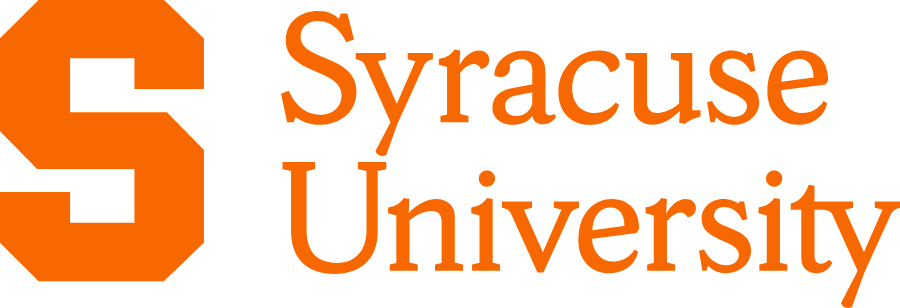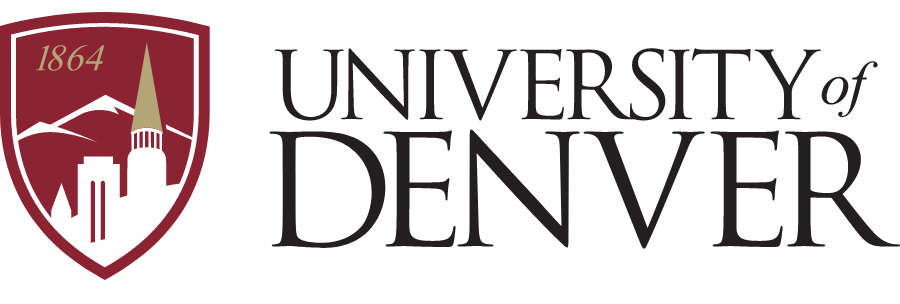Librarians perform important work for the communities they serve all across America. Whether they are working in public, academic, or K-12 school settings, librarians of all types wear many different hats to ensure the people they assist are connected to the services and resources they need. From storytimes to educational research to everyday tasks like paying bills, librarians are there to assist people with their technology and literacy-based queries.
Because librarianship is an all-encompassing profession, many states have specific educational requirements, certificates, and guidelines potential librarians must follow in order to acquire an official librarian role. Like other states across America, Pennsylvania is no different. The state issues a specific set of requirements a potential librarian must follow if they desire to work as a professional, certified librarian. Having a firm understanding of these different pathways to becoming a librarian in Pennsylvania is key to ensuring that a prospective librarian maximizes their professional opportunities as they prepare to apply for jobs and enter the profession.
While some of Pennsylvania’s librarian requirements are similar to other states, there are some notable differences a potential librarian should understand before attempting to secure a professional role in Pennsylvania.
ADVERTISEMENT
Syracuse University
Master of Science in Library and Information Science Online
Syracuse University offers an online MS in Library and Information Science. The program can be completed in 18 months and includes the option to specialize in School Media or customize the program to align with your professional goals. No GRE is required.*
University of Denver
Master of Library and Information Science Online
University of Denver’s Morgridge College of Education offers an online, ALA-accredited Master of Library and Information Science program. Learn from practitioners and gain the service-based skills needed to connect communities with information in the digital age. No GRE is required.*
St. John’s University
Online Master of Science in Library and Information Science
Gain the advanced expertise that information specialist positions require with the online M.S. in Library and Information Science program from St. John’s University. Achieve your career goal by selecting from one of the following specializations:
Arizona State University
M.Ed in Learning Design and Technologies
Create literacy programs and curricula that fully incorporate digital technology and include themes of social justice.
Requirements to Become a Public Service Librarian in Pennsylvania
According to the State Library of Pennsylvania’s Annual Report 2022, the branches of PA’s public library system collectively served over 4,300,000 citizens with registered library cards. Collectively, those citizens visited their public library branches over 21,800,000 times – that is a lot of visits in a single year of public library use!
Pennsylvania’s public libraries are busy, which is why the state seeks to staff the state’s branches with knowledgeable, capable, and helpful librarians and library workers. To ensure staff are knowledgeable and well-prepared to handle PA’s public library demands, potential librarians must adhere to different sets of criteria to become certified.
The State Library of Pennsylvania has three sets of requirements for different levels of library workers:
- Library Assistant – Completed at least two academic years of college education and nine credit hours of library science coursework;
- Provisional Librarian – Holds a bachelor’s degree from a four-year college or university and completed at least twelve credit hours of library science coursework; and
- Professional Librarian – Holds a bachelor’s degree from a four-year college or university and master’s degree in library science (MLIS).
Under this system, librarians could enter the profession at the assistant level and work their way upward in position/title as they completed their education. For library school students, this can be an ideal way to gain work experience and generate income while completing their schooling – as they meet the different requirements, they can “level up” their certifications until their program is complete and they have a completed MLIS in hand.
As potential librarians complete the requirements necessary to achieve each level of library worker certification in Pennsylvania, they can submit an application to receive official certification status from Pennsylvania’s Department of Education. In order to “upgrade” the certification, the student must have the requirements completed before submitting their application.
To work through these different certification levels, a potential librarian in Pennsylvania would need to…
- Complete a bachelor’s degree in any field (while potential librarians could earn their bachelor’s degree in library science, it isn’t a firm requirement – as in many other states, people often enter MLIS programs from a variety of educational experiences and backgrounds that aren’t library-centric).
- Complete a Master of Library and Information Science (MLIS) degree. Again, as in many other states, an American Library Association (ALA) accredited degree is often a preferred qualification, but isn’t necessarily a firm requirement for many positions. This can be explored on a case-by-case basis when browsing different job openings and postings. To browse a list of ALA-accredited MLIS programs by state, including those found in Pennsylvania, you can visit the ALA’s official list.
- Apply for the appropriate certification levels set forth by the State Library of Pennsylvania, as listed above. Maintaining accurate and timely certification ensures that librarians progressing through their education are being recognized by their appropriate level of achievement, which is often reflected in pay grade.
Requirements to Become a K-12 School Librarian in Pennsylvania
The Pennsylvania School Librarians Association describes the K-12 school librarian role as one that wears many hats, but at the position’s core, there are five main duties:
- The teacher: Teaches information literacy skills so that students become critical thinkers and researchers, enthusiastic readers, and ethical users of information; promotes reading for pleasure and learning.
- The instructional partner: collaborates with teachers to develop units and lessons based on the Pennsylvania Common Core and A Model Curriculum for Pennsylvania School Library Programs.
- The information specialist: provides access to library information resources 24/7, connects the school with global learning communities, and guides students, teachers, and other members of the educational community in the ethical use of information.
- The leader: leads and participates in the planning and development of the program and the school’s learning community; serves on school and district committees.
- The program administrator: ensures students and teachers have access to resources that meet their various needs and interests, manages the library’s physical and virtual spaces, develops library programs and events, teams up with local public libraries to better serve their clientele, and much more.
…this is a big set of shoes to fill! In order to become adequately prepared to serve as a librarian in a K-12 school library according to the Pennsylvania Department of Education, a potential librarian must…
- Earn a bachelor’s degree in any subject area. Note, though, that a bachelor’s degree related to teaching or education (preferably with a valid teaching license attached to it) will make the process to become a K-12 school librarian smoother. However, if a potential candidate has a bachelor’s degree in a non-education related field, it isn’t impossible to shift gears and obtain a teaching license.
- Earn an MLIS degree. Similarly to public librarianship, an ALA-accredited degree isn’t necessarily a firm requirement, but it is often listed as a preferred qualification. Check with the specific school district to learn more about preferences for school librarians in Pennsylvania before applying.
- Complete appropriate subject area Praxis testing with at least a minimum passing score of 151, plus any additional Praxis tests as required by coursework or previous testing scores. Learn more about the specific testing requirements for Pennsylvania from Every Library Institute.
ADVERTISEMENT
Syracuse University
Master of Science in Library and Information Science Online
Syracuse University offers an online MS in Library and Information Science. The program can be completed in 18 months and includes the option to specialize in School Media or customize the program to align with your professional goals. No GRE is required.*
University of Denver
Master of Library and Information Science Online
University of Denver’s Morgridge College of Education offers an online, ALA-accredited Master of Library and Information Science program. Learn from practitioners and gain the service-based skills needed to connect communities with information in the digital age. No GRE is required.*
St. John’s University
Online Master of Science in Library and Information Science
Gain the advanced expertise that information specialist positions require with the online M.S. in Library and Information Science program from St. John’s University. Achieve your career goal by selecting from one of the following specializations:
Arizona State University
M.Ed in Learning Design and Technologies
Create literacy programs and curricula that fully incorporate digital technology and include themes of social justice.
Requirements to Become an Academic Librarian in Pennsylvania
Academic librarians have important roles in the college and university populations they serve – whether they are working for an entire college or university or specialized within a specific section of a campus’ library, they are viewed as instruction and research professionals who are available to help both students and faculty in their academic ventures.
The pathway to become an academic librarian in Pennsylvania is very similar to other states’ requirements.
- Hold a bachelor of arts degree in any subject area.
- Hold an MLIS degree. Again, ALA-accreditation isn’t always a firm requirement – check the college’s job postings for the institution’s preferences for librarian candidates before applying.
- As listed under the section for public librarianship, academic librarian candidates can also apply for librarian certification under the State Library of Pennsylvania’s guidelines. While this isn’t a firm requirement for academic positions, it can add professional emphasis on a candidate’s resume.
- Similarly to the requirements set forth in many other states’ academic libraries, some institutions prefer academic librarians who hold multiple degrees. These other degrees are often in specialized fields that help them better serve the academic populations using their facilities. For example, on top of an MLIS degree, an academic librarian working in a college’s law library may also hold a law degree – this extra specialized knowledge can help them better serve the specific population of students and faculty members seeking resources and assistance from this subsection of the college’s overarching library system.
Prospective librarians considering potential employment as an academic librarian in Pennsylvania can check out the Pennsylvania Library Association’s College and Research Division (CRD). This fantastic resource serves as a hub for academic library activity in Pennsylvania and includes articles discussing current issues, lists of upcoming events, professional resources, volunteer opportunities, methods for connecting to other professionals for networking, and more.
Valuable Resources for Future Librarians Seeking Employment in Pennsylvania
Whether a prospective librarian is interested in working at an academic, public, or K-12 school institution, the Pennsylvania Library Association contains a wealth of valuable knowledge and resources students should know as they prepare to enter the profession.
Besides connecting library students to these resources and knowledge, the PLA website also serves as an advocacy hub for literacy in the state of Pennsylvania, hosts a job board for open library positions across the state, and posts regular news updates about topics and issues concerning Pennsylvania’s numerous libraries – K-12 school, public, and academic alike. The PLA also encourages librarians and library workers of all stripes to join PLA so they can be involved in scholarship opportunities, professional conferences and workshops, and networking events.




